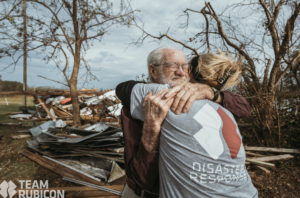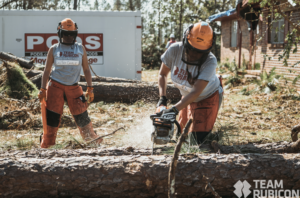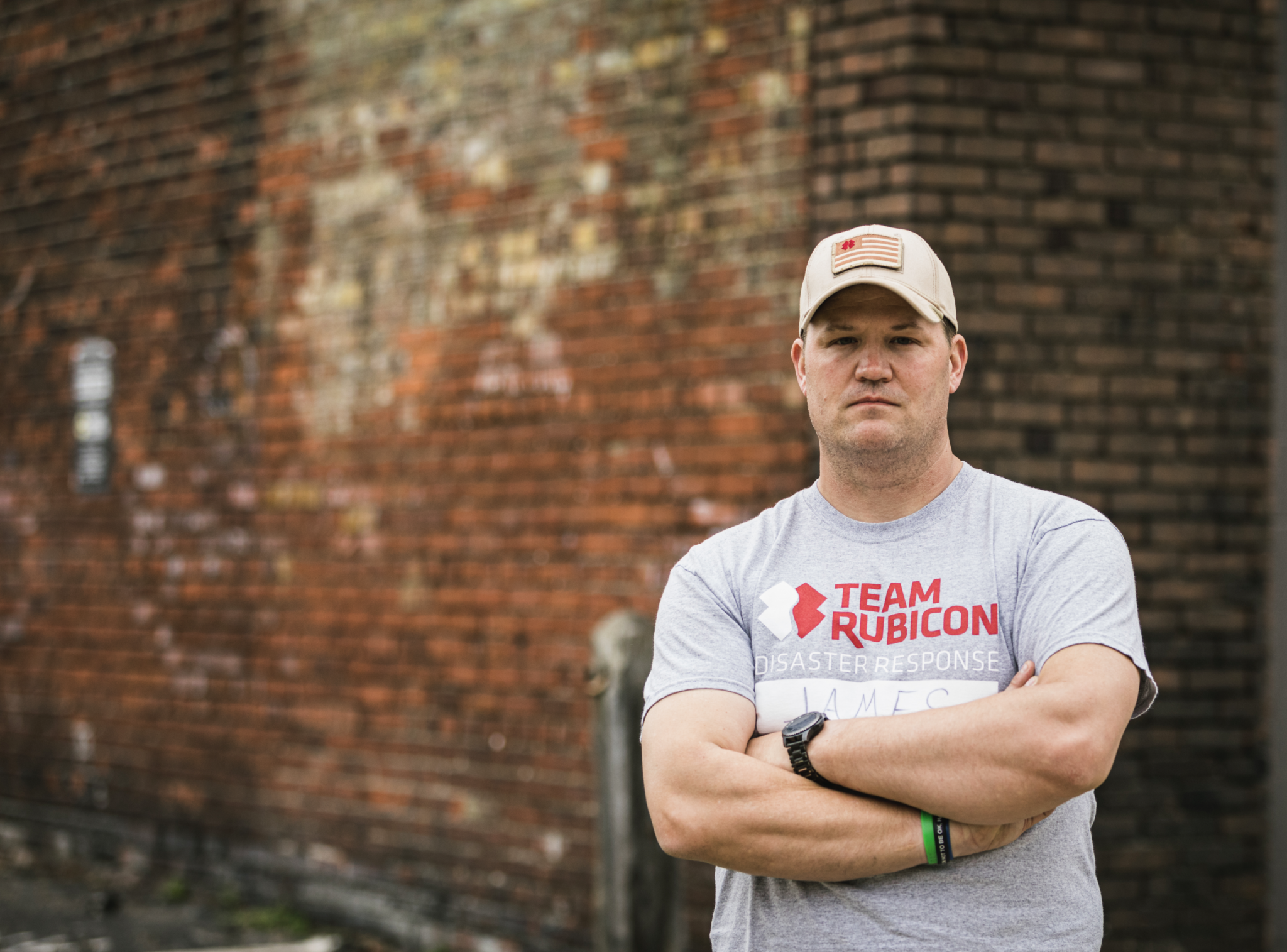Nonprofit Organization Provides Disaster & Crisis Response
Writer / Jon Shoulders
Photographer / Michael Durr
When James Harless joined Team Rubicon, a nonprofit that provides disaster relief for a variety of situations, he was aware of the impact the organization had and continues to have across the country and the world. What he wasnt fully aware of, however, was the impact it would have on him.
 Seeing what we do for those people that were able to help is great, but it lifts me up, and I see how it has lifted up other members of Team Rubicon, says Harless, who has served with the Anderson Fire Department for 15 years, and previously worked in Ohio and Michigan. We would have campfire sessions at the end of the day at my first deployment, and there were some veterans that said they were on the verge of suicide and found purpose and healing in Team Rubicon. Thats what really sold me on the organization.
Seeing what we do for those people that were able to help is great, but it lifts me up, and I see how it has lifted up other members of Team Rubicon, says Harless, who has served with the Anderson Fire Department for 15 years, and previously worked in Ohio and Michigan. We would have campfire sessions at the end of the day at my first deployment, and there were some veterans that said they were on the verge of suicide and found purpose and healing in Team Rubicon. Thats what really sold me on the organization.
Founded in 2010, Team Rubicon was initially formed as a response to the earthquake in Haiti in January of that year. Two Marines named William McNulty and Jake Wood took it upon themselves to collect supplies and a group of volunteers – military veterans, first responders and medical professionals – and deploy to the area a few days after the disaster struck.
The team went on to lend medical and leadership assistance, and since then, Team Rubicon (the name is a nod to the phrase crossing the Rubicon, referencing a commitment to a course of action despite risks or possible downside) has served many underserved locations affected by disasters and humanitarian crises.
 The 501(c)(3) nonprofit organization has provided relief after earthquakes, wildfires, tornadoes, severe thunderstorms and more, and has served internationally in Pakistan, Chile, Burma, Turkey and Greece among other locations. In the U.S., Team Rubicon has assisted in the aftermath of hundreds of natural disasters. Their services are provided free of charge, and military or medical experience is not required for volunteers. Food, lodging, and flight or gas costs are provided for volunteers during deployments.
The 501(c)(3) nonprofit organization has provided relief after earthquakes, wildfires, tornadoes, severe thunderstorms and more, and has served internationally in Pakistan, Chile, Burma, Turkey and Greece among other locations. In the U.S., Team Rubicon has assisted in the aftermath of hundreds of natural disasters. Their services are provided free of charge, and military or medical experience is not required for volunteers. Food, lodging, and flight or gas costs are provided for volunteers during deployments.
In 2015 Harless got wind of the California-Based organization, which he says currently consists of approximately 70% veterans, 25% first responders and 5% civilians, after coming across an online fundraiser.
I did a little investigation to find out who they were, and was pretty intrigued by it, he says. I was very busy at that time though and it wasnt quite the right time yet.
In 2017, when Hurricane Harvey hit in Texas, Harless felt what he describes as a call to action, signed up, and soon found himself on a week-long disaster relief deployment to Rockport, Texas. He describes the amount of work that Team Rubicon was able to provide as amazing.
You see the devastation on TV when things like a hurricane happen, but until youre really boots-on-the-ground and see it firsthand, it doesnt truly sink in, Harless says. When these disasters happen, its not only the loss of their property that people have to deal with. Any incoming help, food and water is nearly impossible for them to get their hands on. Youre there to lift people up and try to get them back to heading in the right direction.
Team Rubicon has assisted Hoosiers in several ways through recent years, including flood response in Elkhart in March of 2018, and tornado relief in Pendleton in June of 2019.
When there arent disasters in the area, we try to keep our local members engaged doing service projects, Harless says, adding that the volunteer sign-up process is simple, and those interested can go directly to the volunteer tab on the official website, and expect a background check along with a few online training sessions. Weve done some work down at Camp Atterbury, helping them clear trees down there.
The organization is currently assisting nationwide with COVID-19 vaccination rollouts, including a large operation in Chicago.
Team Rubicon has grown in leaps and bounds, with well over 100,000 volunteers, and about 1,900 active and non-active members in Indiana, Harless says. Right now were trying to build what were calling resilient cities. Indianapolis was chosen as one of those, with other bigger cities, and it basically means were going to have groups that are trained, with logistic and command training, so if something is to occur like the Pendleton tornado for example, we have people who are ready.
Visit teamrubiconusa.org for more info, including volunteer details, donation and fundraising pages, and more.






